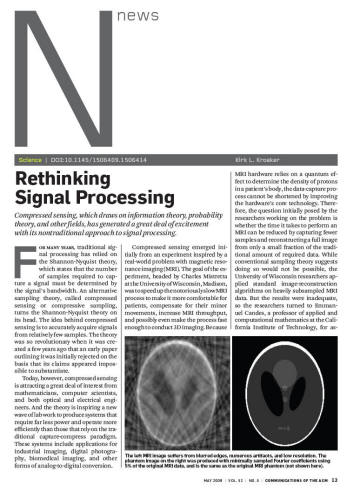|
|
Rethinking Signal Processing
By Kirk L. Kroeker
Compressed sensing, which
draws on information theory, probability theory, and other
fields, has generated a great deal of excitement with its
nontraditional approach to signal processing.
For many years, traditional signal processing has relied
on the Shannon-Nyquist theory, which states that the number
of samples required to capture a signal must be determined
by the signalís bandwidth. An alternative sampling theory,
called compressed sensing or compressive sampling, turns the
Shannon-Nyquist theory on its head. The idea behind
compressed sensing is to accurately acquire signals from
relatively few samples. The theory was so revolutionary when
it was created a few years ago that an early paper outlining
it was initially rejected on the basis that its claims
appeared impossible to substantiate.
(This article appeared in
CACM, vol. 52, no. 5, May 2009, pp. 13-15.)
(download
the PDF)

|